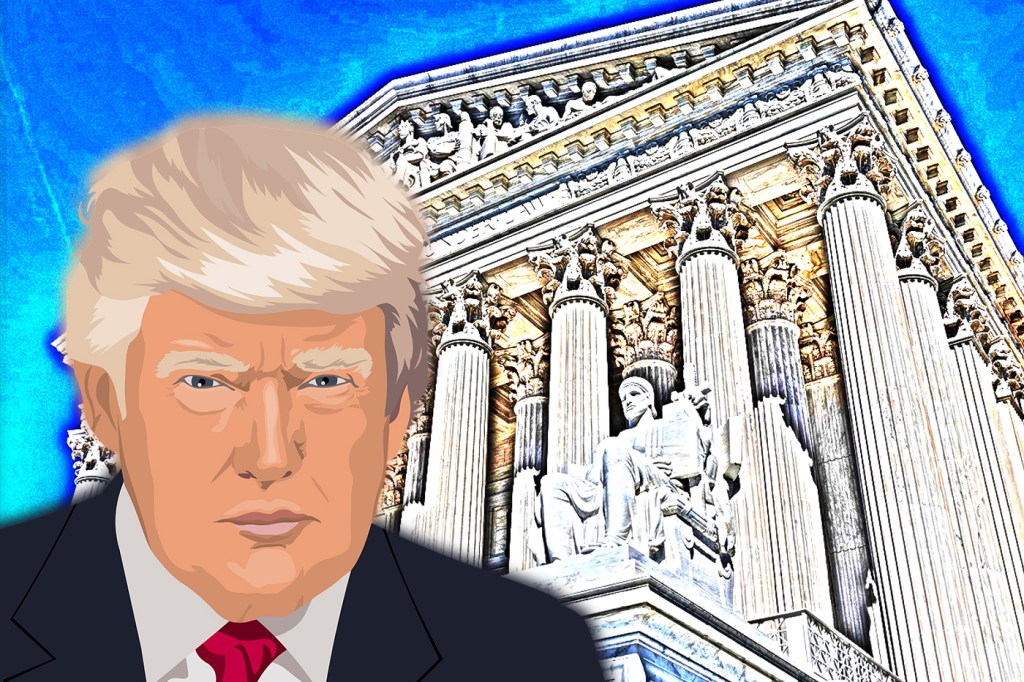High stakes for politics, SCOTUS in 2018

This story is part of our multi-part series looking at some of the big stories and bright ideas primed to make headlines in 2018.
Politics consumed the national discourse in 2017, as the White House challenged conventional norms, Republicans and Democrats clashed over major pieces of legislation, and special counsel Robert Mueller’s investigation loomed large over President Donald Trump’s first year in office.
The political stakes will be just as high, if not higher, in 2018, and the Supreme Court will be hearing cases with major implications for the First Amendment, according to Northeastern faculty experts.
Midterms, Mueller, and the economy
Political science professor Costas Panagopoulos said the midterm elections will increasingly take center stage as the year goes on. “Most closely I’ll be watching the president’s approval rating and the status of the economy, which are two strong predictors of outcomes in midterm elections,” said Panagopoulos, an expert on campaigns and elections.
Meanwhile, for as much heat as the Mueller investigation put on Trump last year, Panagopoulos said the pendulum could swing the other way this year. He explained that if the investigation draws deep into 2018, the public may begin to lose interest or interpret the delay to imply that evidence of wrongdoing is elusive. “To some extent, Mueller may be running out of time to bring this investigation to a close.”
Most closely I’ll be watching the president’s approval rating and the status of the economy, which are two strong predictors of outcomes in midterm elections.
Costas Panagopoulos
Professor of political science
He said Mueller’s investigation is also a “dicey issue for Democrats.” Depending on its status as the midterm elections near, the investigation could stimulate the Democrats’ base or motivate the Republicans’ base. “[The Democrats] have to be very careful in how they think about this strategically going into the 2018 elections,” he said.
The Republicans face a similar dilemma with the economy, as they aim to keep their majority control in Congress. If the economy is booming, they can tie it to their new tax bill. If not, the Democrats will seize upon this issue headed into the midterm elections, Panagopoulos said.
The courts in 2018
“This is the year of the First Amendment at the Supreme Court,” said Michael Meltsner, the George J. and Kathleen Waters Matthews Distinguished University Professor of Law. Meltsner, who closely follows the Supreme Court, said justices have taken on two cases this term related to the constitutionality of political gerrymandering. In one case, Democrats have challenged legislative redistricting in Wisconsin done by Republicans. In the other, Republicans are challenging such redistricting in Maryland drawn by Democrats.
Meltsner noted that Justice Anthony Kennedy, who has fiercely defended the First Amendment, will likely be the deciding vote in both cases. “[Gerrymandering] is the most important issue of the term because it goes to the very structure of our democracy,” he said. “It is the one I’d focus on most.”
This is the year of the First Amendment at the Supreme Court.
Michael Meltsner
George J. and Kathleen Waters Matthews Distinguished University Professor of Law
He also underscored other cases with First Amendment implications the Supreme Court will weigh—and where Kennedy’s vote will be just as pivotal. They include one in which a gay couple is suing a bakery that refused to make its wedding cake on religious grounds, and another that involves a challenge to a California law requiring licensed pregnancy centers to provide information about abortion and contraceptive services.
“What we’ve seen in the past decade is an increasing use of the First Amendment to resolve major issues in society,” Meltsner said. Another example, he noted, is the landmark Citizen’s United ruling in 2010 that loosened campaign finance rules and opened the door to increased special-interest spending in elections. “The Supreme Court hadn’t decided a significant First Amendment case until the first World War. Now, the First Amendment is something that all kinds of players in society, often corporate interests, mask behind to get what they want.”
Law professor Martha Davis will also be following the Supreme Court closely, particularly whether the current justices stay put. She noted that three justices, including Kennedy, are older than or nearing 80. Whether any decide to retire will be of significant consequence—notably Kennedy, the court’s pivotal swing vote, who may be considering retirement, according to reports last year.
If President Trump is given the opportunity to appoint someone else, it could result in a very significant shift to the right.
Martha Davis
Professor of law
“What’s at stake with that, of course, is immense,” Davis said. “We have a very conservative court currently, and Kennedy is the middle of the court. If President Trump is given the opportunity to appoint someone else, it could result in a very significant shift to the right. That will be something on many people’s minds as the end of the Supreme Court’s term approaches.”
Davis also pointed to several areas in which she expects federal courts will clarify and even create law. One is the so-called foreign “Emoluments Clause,” a provision of the Constitution in which cases are pending or expected to be appealed around Trump’s business holdings. Another area is obstruction of justice, depending on the outcome of the Mueller investigation.
The world is watching
“Almost on a daily basis, we have new situations in which the power, credibility, and influence of the U.S. globally is being called into question,” said Panagopoulos.
How far Trump goes with his “America First” foreign policy doctrine will also be important to watch in 2018, he said. He pointed to U.S. Ambassador to the United Nations Nikki Haley’s message last month that the U.S. is “taking names” of countries criticizing the decision to move the U.S. embassy to Jerusalem. He said this stance is a “not too subtle warning to the rest of the world” that the Trump administration is ready to respond to actions they deem unfavorable to American interests.
Meanwhile, Davis said Trump’s attacks on the legitimacy of the judiciary, law enforcement, and the press—and how well these institutions hold up to these criticisms—will also have implications beyond America’s borders. “Many people have expressed great concern about the way in which these attacks undermine the rule of law and the integrity of our judicial institutions, which up until now have been the envy of the world,” she said. “There is increasing international attention to the domestic instability that president’s attacks create.”





